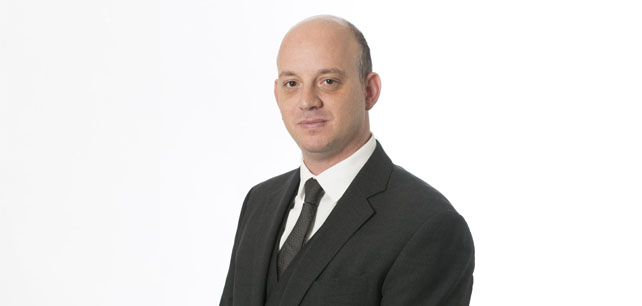
Investing, "in the time of Cholera"
Thought Leadership
Investing, “in the time of Cholera”
Tue 24 Mar 2020
The Coronavirus has propelled humanity into action at a global level, more than any other disease since the proliferation of vaccination and the invention of penicillin. HIV/AIDS, still an active pandemic counting over 30m victims worldwide, has never caused such a reaction. My mother, a child victim of polio herself, told me that it is the first time she has seen anything like the present scare. At the time of writing, over 1 billion people, mostly in the western hemisphere, are in house confinement. Why this particular disease scared us more than any other, will probably be debated after it has passed.
Understandably the world focuses on Italy, counting over 600 dead a day, and seeing the curve rising in Spain, the Netherlands, the UK and the US. Yet, it is hopefully looking at Wuhan, where “social distancing” and isolation measures were lifted for the first time after two months.
This is the lesson one should economically take from this: it shall -eventually- pass. Science has dealt with worst, and right now, the world’s resources are focused on finding the solution. And when it does, we will have to contend not just with the human, but the economic fallout as well. Our pension incomes will still be there. Our financial obligations likewise. Financial planning might need a review, as the world is set to undergo a sharp -and hopefully short- recession, but the basic axis upon which the economy spins will probably remain intact.
Output to contract
We can comfortably use a phrase that, under other circumstances, would surely risk bringing upon us financial anathema: “This time is different”. European and Chinese societies, as well as some American states, worried by the death toll in Italy, have weighed the cost of human lives against that severe of economic disruption and have, quickly or slowly, opted for life. What ensued, for the first time in over 100 years of financial history, is an economic and financial crisis due to factors not inherent to market boom and bust cycles, or the functioning of business. Economically, we are staring at a GDP contraction of 10%-20% in a quarter for many developed economies, unheard of since WWII and maybe more to come. This is more than twice the economic fallout of the 2008 financial crisis, which was spread out in 18 months.
How should we “invest in a time of cholera”? (sic)
For one, as this is not a traditional market crisis, investors must look outside markets for flags as to when the crisis will be over. From the quickest to the slowest, these are the three basic scenarios under which “social distancing” measures are lifted:
(1) easy, available and cheap testing or warmer conditions can slow infections to a pace acceptable for lifting some measures
(2) some medicines already in circulation can be used to create a solid cure protocol, enough to re-open most parts of the economy
(3) The invention and proliferation of a vaccine which will signal a proper return to business.
In the meantime, we can no longer view stock and bond markets as fully functioning to raise and allocate capital. With over 1 billion people virtually in house arrest, including New York and London, it is difficult to consider market movements as fully “efficient”. Investment meetings are mostly taking place for maintenance and M&A activity is freezing. Fund managers will be watching their holdings, mitigating losses wherever possible, but probably won’t be investing significantly until more clarity has been reached. We find it difficult to believe that major investment decisions will be made by investors who are locked in their living room with their children. Thus, we cannot look at traditional market metrics, such as valuations, to flag a possible recovery or take market movements hereafter at face value.
Time is of the essence. For every day the economy remains in lock-down, the ensuing economic damage is disproportionate. Unemployment is set to rise and many small businesses will forever shut down, as there’s no amount of government aid that can make up for the sheer stoppage of cash flows. Urgency is the mother of invention, so we remain optimistic that a solution out of this will be found. The speed at which this happened and the speed and unpredictable timing at which it may be reversed, compel us not to change our positioning but trust that time-tested asset allocation principles will get us through these, admittedly strange, times.
























Comments